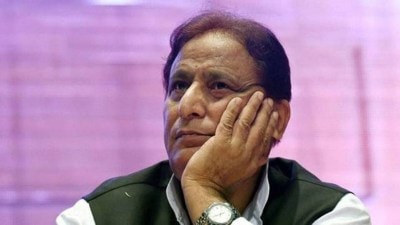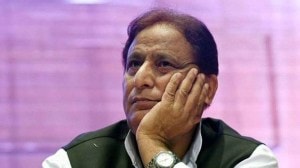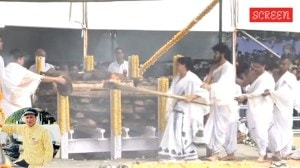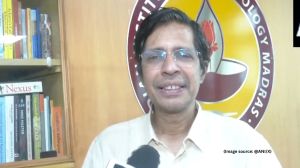Celese forgets brief, pushes Enron case
MUMBAI, JANUARY 22: The outgoing ambassador of the United States, Richard F Celeste, did not think it odd to hold a brief for a American m...

MUMBAI, JANUARY 22: The outgoing ambassador of the United States, Richard F Celeste, did not think it odd to hold a brief for a American multinational project in trouble – Enron’s Dabhol Power Company – in his final address at the US Consulate on Monday.
The speech, which is to be followed by a meeting with chief minister Vilasrao Deshmukh on Tuesday on the Enron issue, virtually revolved round the Enron theme.
Under the guise of talking about how trade and economic reforms need to be taken further, Celeste stated that “one major success (Enron) is tottering on the brink of turning into a major disappointment” and then took the familiar line of how this vitiates the investment climate: “…it regrettably feeds the concern among American businessmen that India remains a less-than-reliable destination for their investment dollars”.
Enron and the mess that Dabhol Power Company finds itself in took up nearly four pages of his eleven-page address. “I would like to do what I can to ensure Enron’s Dabhol power plant remains a symbol of successful American investment in India and not a symbol of the impediments that still hinder even greater foreign direct investment,” he remarked and explained why Dabhol’s power is essential to India.
“India needs Dabhol power…every farmer in Maharashtra needs sufficient and dependable power,” he said recalling the day-long collapse of the northern grid earlier this month.
Celeste’s unabashed pitch for an American MNC is reminiscent of the concerns of his predecessor Frank Wisner, who on retiring as US ambassador to India joined the board of Enron. Of course, Celeste tried hard to project his appeal for Enron’s Dabhol plant under the rubric of the "impediments to investment that keep India and the US from fully realising their potential." But no one was in doubt that he wanted to see the mess cleared up as soon as possible, of course in favour of Enron.
Celeste’s remarks comes on the eve of an all-important meeting on Tuesday as political pressure mounts on the chief minister from allies and others for a review of the project whose per unit cost of power is seen as too expensive. Officials confirmed that “Deshmukh will meet Celeste in connection with the Enron power project vis-a-vis the demand to scrap it and the decision of the government to set up a high-level committee to review the entire project.” The DF government is in the process of setting up the cttee to review the project.
The meeting will also be attended by Deputy Chief Minister Chhagan Bhujbal, Finance Minister Jayant Patil, Energy Minister Padamsinh Patil, Chief Secretary Arun Bongirwar and Maharashtra State Electricity Board Chairman Vinay Bansal. There is a vertical split in the Democratic Front about the review. While cabinet members of the Congress and NCP feel that the project should be reviewed because it will not be possible to scrap it at this stage, smaller constituents of the Front – Peasants and Workers Party, Janata Dal, Samajwadi Party, Prakash Ambedkar-led RPI and Communist Party -believe that the project should be scrapped.
After the DF government took over in October 1999, some of its constituents took up their demand for scrapping the controversial project. During the last six months, three special cabinet meetings besides two meetings of the DF Coordination Committee were held to discuss the project, particularly its adverse impact on the economy of the Maharashtra State Electricity Board.
Deshmukh finally conceded the demand to set up a review committee. Though Deshmukh had declared on January 11 that the committee will be set up within two days, he has not been able to constitute it. A senior cabinet Minister believes that it is best to get Enron to re-negotiate the tariff structure as scrapping the project would entail the government to pay some Rs 28,000 crore as damages. “We feel that the power purchase agreement should be redrafted in such a manner that we will buy power from the first phase, while Enron will be at liberty to sell power from the second phase to the neighbouring states. Alternatively, the centre should declare it as a mega project, so that Enron will be in a position to sign fresh agreements with any state in the country,” the NCP Minister pointed out.
These issues will definitely figure in the high-level meeting between Deshmukh and Celeste but who makes the impact is anybody’s guess. Celeste is clear that Enron muddle has to be sorted out if the investment climate for American businessmen has to become more conducive — a line that Wisner is his position sang when the BJP-Sena combine threatened cancelling the project in 1994. “The history of Enron’s involvement in India has been a long and hard road strewn with innumerbale pitfalls and potholes…I feel hopeful that a working solution will be found to take full advantage of this essential addition to India’s power grid,” he signed off.
Photos



- 01
- 02
- 03
- 04
- 05




























